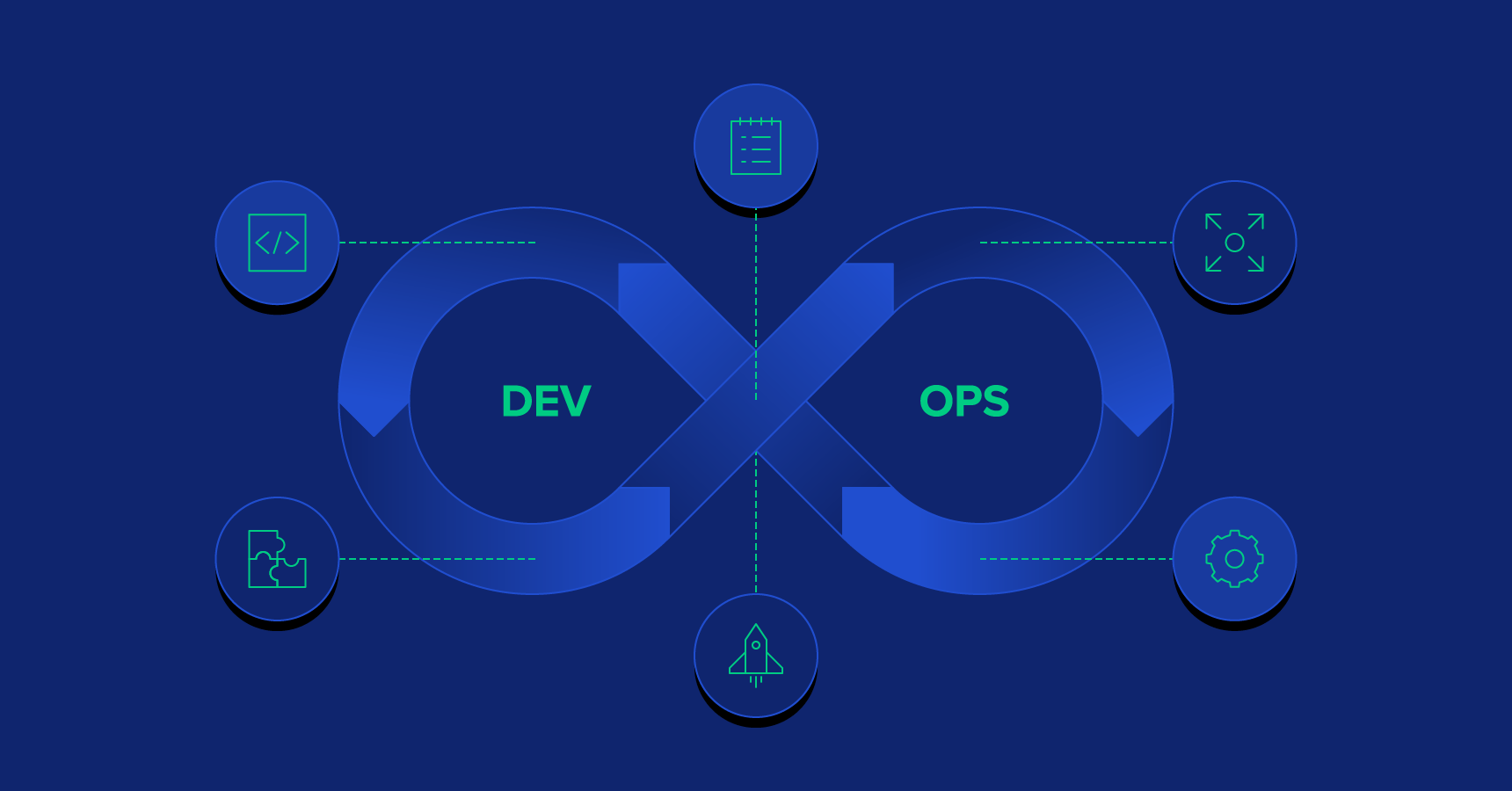What is DevOps scope and how’s it going?
DevOps culture turned the software development process and lifecycle upside down. It made the whole process more flexible and replaced the focus and priorities. Let’s remember, what did the software development process look like before DevOps?
There were three main teams that worked on the project:
- developers – people who write code and make sure it works;
- Quality Assurance (QA) engineers – specialists who make tests for the code and check how it works;
- IT operations – people who deploy code and make environments for its deployment.
So, what’s the problem? Three qualified teams work on the project, each specialist does his tasks and things gonna be alright. Well, not really.

Developers write code and give it to the QA specialists who test it and give back because of some errors or bugs. Developers rewrite code and give it to the QA engineers again. This process can be repeated many times. Simultaneously, code needs some environment for testing and running. So, IT operations create the environment for each test case.
This doesn’t look very hard in words but in the real process is quite a laborious and long. Especially with on-prem servers that need reconfiguration for each test. The whole process looks like endless “throwing responsibility over the wall”. Each team continuously gives each other parts of code and the final version takes a very long time to be made.
What does the DevOps scope include?
A lot of people think DevOps is some complicated tool for making things better. This is quite an uninformative definition. Thus, we’ll explain what is DevOps.
Of course, DevOps includes a lot of powerful and complicated tools. DevOps engineers work with Docker containers, Jenkins, Kubernetes, Terraform and other instruments. Such tools need a lot of knowledge and experience, that’s why DevOps engineers are very valuable on the job market.
But what about DevOps methodology? Well, it will be more appropriate to perceive DevOps more as a culture, than a methodology. DevOps culture or DevOps philosophy provides a totally different approach to software development.

There is a lot of information about DevOps as a collaboration between developers and IT operations engineers. In reality, DevOps engineer is a separate specialist who provides DevOps culture, tools and scope to the company. So, what does the scope for DevOps look like?
DevOps engineer scope
Let’s have a look at the common list of actions that a company needs for providing DevOps culture.
- Assessment. This is the first thing to do. DevOps engineer needs to understand what the current system state is, what preparations are needed and how much time it will take.
- Creating a strategy. After the assessment DevOps team can make a plan on how to remove bottlenecks, make the system more efficient, etc.
- Redesigning of the current system. It is not a required point. DevOps methodology can be implemented without redesigning, but for the legacy unwieldy system, it is necessary.
- Cloud migration. If the system still works with on-prem hardware, cloud migration can make software development more efficient and reduce costs at the same time. But this is also not required and depends on business goals.
- Creating CI/CD pipelines. CI/CD means Continuous Integration and delivery. This is the main DevOps principle. All the steps above were preparatory work for CI/CD. This principle changes the whole approach to software development. It allows to make quick changes and updates in the software and significantly reduce time-to-market for new features, as well as greatly automate the ongoing infrastructure management and monitoring.
- Working with the teams. The last step is to work with teams on the project. This allows making DevOps implementation efficient. DevOps specialists explain other teams new principles of work because even the newest tool won’t work efficiently with the old mindset and old approaches.

Wrap Up: DevOps scope is the future of software development
As you can see, DevOps culture changes software development and makes it more efficient, faster and flexible. In a dynamic world is very important to have the ability to make changes. Thus, DevOps culture is the most preferable way to write software nowadays.
